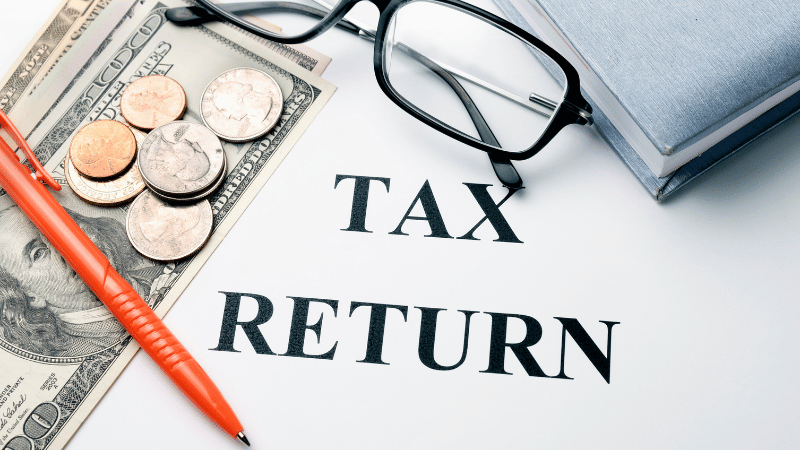Amending Tax Returns: Deadlines, Process, and FAQs

Sometimes, taxpayers need to correct their tax returns. Fortunately, it’s possible to amend these returns, but knowing the deadlines is essential. This article will discuss the deadlines for amended tax returns and how to complete this process.
What Are the Deadlines for Tax Return Amendments?

To file an amended tax return, you must meet one of three deadlines:
- Three years after your original return was filed
- Three years from the original due date of the return
- Two years after you paid your taxes for that tax year
You can choose whichever of these options is later. If you filed your taxes early, count from the April deadline.
The tax year of your amended return is crucial to the deadline, so check the dates carefully. If you have exceptional circumstances, you might be eligible for an extension. There is no set extended period; it depends on your circumstances.
Note: if your original return contains correct information but has math errors, you don’t need to file an amended return. The IRS checks for mathematical accuracy regularly.
Refer to the official IRS site for details.
Exceptions to the Standard Tax Amendment Deadline
You may be allowed more time for an amended return in certain circumstances. The extension would depend on the conditions you qualify for. These conditions include:
- Qualifying for a loss or credit carryback (IRS Tax Topics)
- Being affected by a federally declared disaster. Refer to what constitutes a declared disaster.
- Serving in a contingency operation or combat zone (IRS: Combat Zone)
- Having worthless securities or bad debts (IRS: Tax Topic)
- Having foreign tax credits or reductions
In some cases, the IRS may permit individuals to submit an amended return at a later date upon request. For more information, refer to the exceptional cases IRS topic.
Why Do You Need to Amend Tax Returns?
You may have to correct a previously filed tax return for several reasons. Regardless of your reason, you should understand all possible reasons to ensure your returns are accurate and won’t attract IRS scrutiny.
Failing to Report All Income Sources
Taxpayers with second jobs or side hustles need to remember to declare the income they received from their other income streams.
Missing or Inaccurate 1099 Forms
You might have to amend your return if you don’t receive all the 1099 forms for the tax year. This also applies to missing forms.
Human Error
One of the most common reasons why taxpayers amend their tax return is because of simple typographical errors and incorrect W-2 forms. All details should be accurate to avoid penalties or IRS scrutiny.
Double Reporting
Most of the time, rolling over one’s retirement account to another is tax-free, but you must pay attention to avoid unnecessary issues while filing a return.
Retirement Account Rollovers and Distributions
Most of the time, rolling over one’s retirement account to another is tax-free, but you must pay attention to avoid unnecessary issues while filing a return.
Misclassifying Income
Some taxpayers misclassify income sources, such as nontaxable income, as taxable or vice versa, which may trigger IRS scrutiny.
Business Income Changes
Both startups and big conglomerates may encounter this issue. Discovering unreported income streams or expenses after filing your return may require you to submit an amendment for additional taxes owed.
How Do Net Operating Losses Affect the Tax Amendment Deadline?

Typically, a taxpayer must file a tentative quick refund claim within a year after the year-end when the NOL arose. However, the IRS provided a six-month extension to file Form 1139 or 1045 in 2018. Taxpayers may also relinquish the NOL carryback privilege and carry losses to future years.
The IRS has a ton of information on Form 1139 on their site.
Consequences of Missing the Tax Filing Amendment Deadline
If you miss the deadline to file an amended return, you may face the following consequences:
- Forfeiture of potential funds: Many taxpayers file amended returns to obtain additional funds. Missing the deadline may mean losing out on these extra funds.
- Excess collections account: Potential tax deductions from the amended return may result in excess collection by the IRS.
- Possible IRS mistakes in processing late amendments: Late submissions may lead to errors in processing your request, potentially affecting the filing status of your amended return.
- Penalties if audited: Failure to file an amended return when necessary could result in severe consequences if the IRS audits you, including monetary fines and potential jail time.
For more info, refer to the IRS article Tax Topic 309
Can You Amend a Tax Return Online?
Yes, you can use tax software to file an amended return. Submit the same forms and schedules you included with your original Form 1040, ensuring they have your e-signature to be valid.
For tax years before 2021, you must file in paper form if you initially filed your tax returns on paper. Electronic filing is available for tax years beginning in 2019. However, not all tax software supports e-filing for amended returns, so verify the options available.
How to File an Amended Tax Return Before the Deadline?

To file an amended tax return, you should follow these steps:
- Complete Form 1040-X, available on the IRS website. You can accomplish this manually or through tax software.
- Submit supporting documentation: Include the files you sent with your original tax return and ensure all documents are relevant to the Form 1040-X submitted.
- Choose the refund claims option: You can choose between direct deposit or paper check.
- Track your amended tax return processing: You can check your amended tax return updates on the IRS processing status dashboard. To track your amended tax return, you must provide your social security number or other Individual Taxpayer Identification Number (ITIN), birthday, and zip code.
An amended tax return usually takes between 8 to 12 weeks, but there are instances wherein this stretches to 16 weeks. It should be highlighted that you’re permitted to file up to three amendments for the same tax year.
How Long Does It Take the IRS to Process an Amended Return?
The average processing time for an amended tax return is 8 to 12 weeks. However, in some cases, this may extend to 16 weeks. You can check the IRS processing status dashboard for updates on your amended return.
The IRS accepts most amendments, but there are cases wherein they disagree with them. If your amendment is rejected, you can expect a denial letter or a notice of claim disallowance.
Extension for Filing an Amended Return
There are cases where taxpayers are permitted to submit their amended tax returns beyond the three-year standard deadline:
- Foreign tax credits: When the amended tax return concerns foreign tax credits, the deduction can be filed ten years from the due date for filing the return for the year the foreign taxes were paid.
- Bad debts or worthless security: The credit or refund must be filed seven years after the tax return due date, after which the debt or security becomes worthless.
- Contingency operations or combat zone: The extension would depend on a case-by-case basis.
What if you owe more taxes?
If you owe the IRS additional taxes, you may send a check or mail order payable to the United States Treasury with Form 1040-V. To avoid penalties, you should make payment before the April due date.
If you file after the April due date, there’s no need for penalties on amended returns. The IRS will make the necessary adjustments.
File Tax Return Amendments With Professional Help
While you may submit an amended tax return three times per tax year, you wouldn’t want to make mistakes. If you find navigating state tax liability and amended returns challenging, you should confer with a professional CPA Consultant. Sign up today if you want your federal return to be submitted within the deadline.
FAQs
What is the last day to file an amended return?
You must submit an amended tax return three years after your original return was filed or two years after you paid your taxes for that tax year. You can choose whichever date is later to file an amended tax return.
How far back can I amend a tax return?
You can file an amended return if you fall within the three years. However, you may be given more time to file an amended tax return if you fall within any of the exception criteria.
How much does it cost to amend a tax return?
You won’t have to pay anything to amend a tax return. However, using electronic software might incur costs. The fee would depend on the software you choose.
What happens if you don’t file an amended tax return?
If you don’t file an amended return, you forfeit the funds you’re owed and allow the IRS to collect more funds from you.
Can I amend my tax return if I already filed?
Yes, you can file an amended return as long as you’re within the three-year grace period. You can also significantly amend your return for the same tax year.
Is it worth amending my tax return?
Yes, an amended return might mean extra money you can use for your daily expenses. The paperwork will be worth it, mainly if you’re owed a considerable amount.
What to Do if You Owe Additional Taxes?
You can send a check or money order payable to the United States Treasury. The penalties might be expensive if you don’t pay the right amount and are audited.
What if You Are Due a Refund?
You can choose between a paper check and direct deposit if it’s confirmed that you’re due a refund. You’re permitted to select an option once you file an amended return.